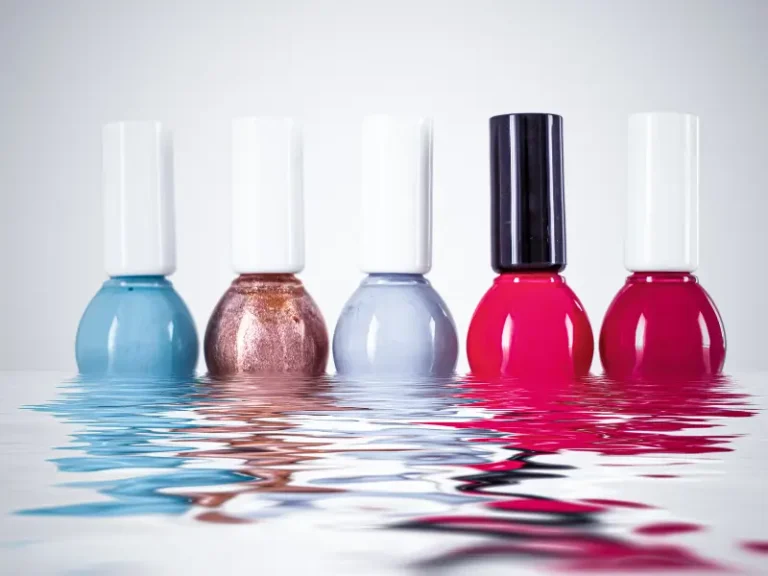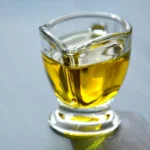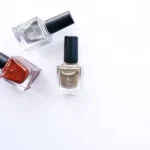Have you ever wondered if nail strengtheners actually live up to the hype? If you’ve dealt with weak, brittle nails that break at the slightest touch, you’ve probably been tempted to try one.
Nail strengtheners promise to fix all your nail woes—stronger, longer, healthier nails in just a few swipes? Sounds too good to be true, right?
Well, let’s dive into the truth about nail strengtheners and whether they actually deliver on their promises.
What Are Nail Strengtheners, Exactly?
Nail strengtheners are like a protective shield for your nails. They’re typically clear or lightly tinted polishes designed to make your nails harder and more resistant to breaking, peeling, and splitting.
The idea is simple: nail strengtheners work by adding layers of protection on top of your natural nail. This creates a harder surface and reduces the chances of your nails bending or snapping under pressure. Most strengtheners contain ingredients like:
- Proteins (like keratin) – Boosts the structure of your nail plate.
- Calcium – Helps strengthen and harden the nail.
- Vitamins (like B5 and E) – Nourish and promote healthier nail growth.
- Formaldehyde or resin – Bonds the nail layers together for added hardness.
But here’s where it gets tricky—not all nail strengtheners are created equal. Some formulas are helpful, while others can actually make things worse (more on that later).
Types of Nail Strengtheners
Not all strengtheners work the same way. There are actually different types, each with its own purpose:
1. Hardening Strengtheners
- Contain ingredients like formaldehyde to toughen up the nail plate.
- Best for soft, bendy nails that struggle to hold polish.
- Downside: Overuse can make nails TOO hard, leading to brittleness and more breakage.
2. Moisturizing Strengtheners
- Focus on hydration with oils and vitamins.
- Great for dry, peeling nails.
- Downside: They may not provide enough strength for weak nails prone to splitting.
3. Protein-Based Strengtheners
- Use keratin and silk proteins to reinforce the natural nail structure.
- Ideal for thin, weak nails that need more flexibility.
- Downside: Takes time to see results—patience is key!
The Downsides of Nail Strengtheners
While nail strengtheners sound like a miracle fix, there are some pitfalls to watch out for:
👉 Overuse Can Backfire
- Strengtheners that harden the nails too much (especially those with formaldehyde) can make them brittle and prone to snapping.
- Think of it like a glass—too much hardness makes it more likely to shatter.
👉 Drying Ingredients
- Some formulas include alcohol or harsh chemicals that strip moisture from your nails, leaving them dry and flaky.
- If your nails are peeling or cracking more after using a strengthener, this could be the reason.
👉 Short-Term Fix, Not a Cure
- Nail strengtheners are more like a band-aid—they protect the nail while you wear them, but they won’t necessarily solve underlying health issues (like nutrient deficiencies).
Do Nail Strengtheners Actually Work?
The short answer? Yes… but only when used correctly.
For best results:
✔️ Identify your nail type – Are your nails soft, brittle, or dry? Pick the right strengthener accordingly.
✔️ Limit usage – Overusing hardening strengtheners can lead to more harm than good. Try using them once or twice a week instead of daily.
✔️ Pair with a healthy nail routine – Strengtheners work best when combined with good nail care habits (like moisturizing your cuticles and avoiding harsh nail products).
✔️ Give your nails a break – Let your nails breathe every now and then to avoid product buildup and over-hardening.
Best Nail Strengthener Ingredients to Look For
If you’re shopping for a nail strengthener, check the label for these nail-friendly ingredients:
- Biotin – Boosts nail growth and strength.
- Keratin – Reinforces the nail’s natural structure.
- Calcium – Helps fortify weak nails.
- Vitamin E – Hydrates and promotes flexibility.
- Argan Oil – Conditions and protects from dryness.
Avoid strengtheners with:
❌ Formaldehyde – Can cause allergic reactions and make nails brittle over time.
❌ Toluene – Harsh solvent that can weaken nails.
❌ Phthalates – Linked to health concerns and not necessary for nail health.
Alternatives to Nail Strengtheners
If nail strengtheners aren’t working for you, try these natural alternatives:
👉 Cuticle Oil – Keeps the nail bed hydrated and promotes healthy growth.
👉 Biotin Supplements – Taking biotin daily can help improve nail thickness and strength.
👉 Gentle Buffing – Smooth out uneven surfaces without weakening the nail.
👉 Hydrating Nail Creams – Lock in moisture to prevent cracking and splitting.
Final Verdict
So, do nail strengtheners really work? Yes—but only if you choose the right type for your nails and don’t overdo it. Hardening strengtheners are great for soft nails but can lead to brittleness if overused. Moisturizing and protein-based strengtheners work well for dry and weak nails but need consistent use to see results.
At the end of the day, nail strengtheners are a helpful tool in your nail care routine—but they’re not a magic solution. Pair them with a balanced diet, regular moisturizing, and proper nail care, and you’ll be on your way to stronger, healthier nails in no time.



